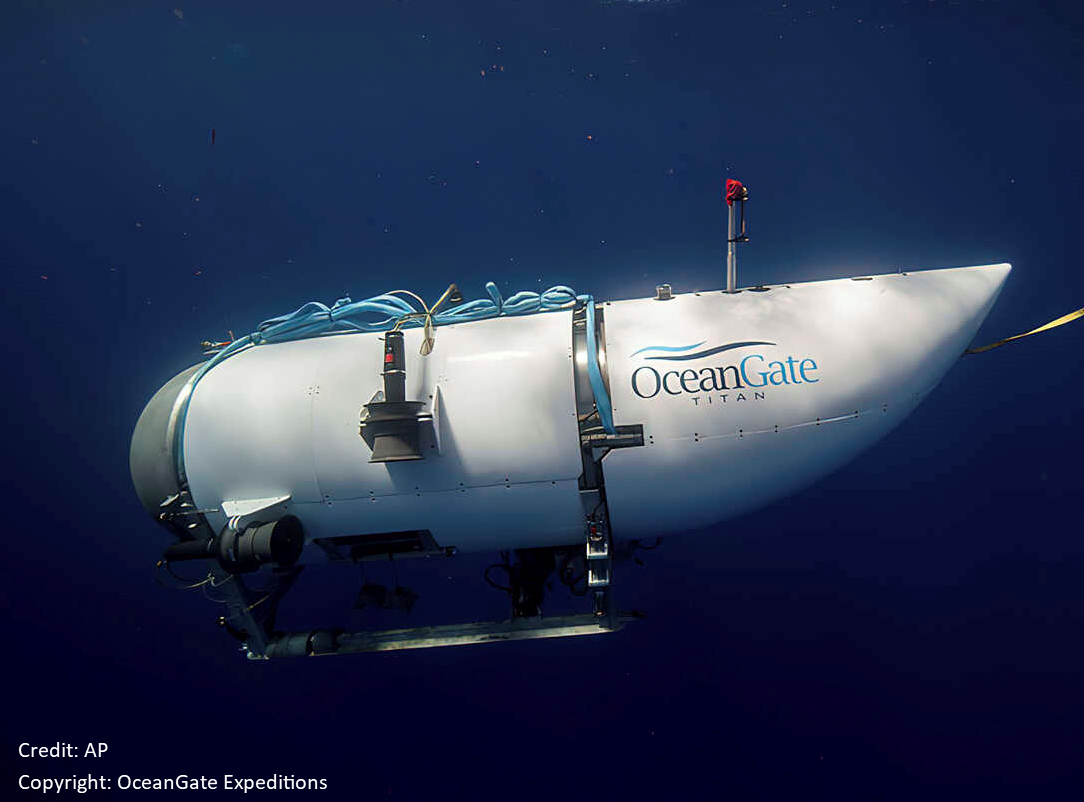All of us here at Walton Law Firm, P.C. have been glued to the recent news of the company #OceanGate’s failed #Titan travel excursion. The Titan was a deep-water submarine that was set to tour the wreckage of the famous sunken ship, The Titanic, which now sits on the ocean floor – about 13,000 feet deep.
If you have a #TikTok account – like we do (to follow us click here) – then you know that the coverage of this event has been absolutely brutal. While we won’t address how the internet has no chill, many of the videos we saw brought up a great topic: The effectiveness of Liability Waivers. To read OceanGate’s full Release of Liability Waiver – click here.
In this blog post we are going to touch base on 5 reasons why liability waivers may not hold up in a court of law.
However, before we get into those 5 reasons, let’s briefly review what is a liability waiver?
According to Adobe.com, a “liability waiver form is a legal contract that educates one party about the risks associated with an activity. Once signed, it prevents the participant from opening a lawsuit against the company in the event of damage or loss, effectively shifting responsibility for injuries from the company to the customer.”
Most of us have signed some form of liability waiver during our lifetime. We usually sign them for our children to play a sport or for us to jump at a trampoline park. Businesses that have a higher risk of danger or injury will usually request that a liability waiver is signed before you are able to participate.
Okay, now that we know what a liability waiver is – let’s jump into the Top 5 reasons liability waivers may not hold up in a court of law.
1. Enforceability:
The enforceability of a legal waiver depends on the jurisdiction and the specific circumstances surrounding the agreement. Laws can vary from one jurisdiction to another, and courts may interpret waivers differently. Some jurisdictions may have stricter requirements for enforceability, while others may be more lenient.
2. Types of Liability:
Waivers are generally more effective in cases involving simple negligence or ordinary risks. However, waivers may be less effective or even invalidated in situations involving gross negligence, intentional misconduct, or certain statutory rights. Some jurisdictions may limit the enforceability of waivers for specific types of claims, such as personal injury or wrongful death.
3. Clear and Unambiguous Language:
To enhance enforceability, a waiver should be written clearly, using plain language that is easily understandable by the parties involved. Confusing terms may weaken the effectiveness of the waiver and create uncertainty about its scope.
Ready to discuss your case? Contact our experienced team of personal injury lawyers for a free personal injury initial case consultation*
4. Voluntary and Informed Consent:
For a waiver to be enforceable, it’s important that the party signing it does so voluntarily and with a full understanding of its implications. If a party can demonstrate that they were coerced, misled, or lacked the capacity to understand the waiver, a court may invalidate it.
In Alabama, pre-injury liability waivers are not enforceable for anyone under the age of 19. State of Alabama law states that minors cannot enter contracts, even if a parent or guardian also signs it.
5. Professional Advice and Risk Awareness:
In certain contexts, such as sports or adventure activities, participants may be required to sign waivers. However, relying solely on a waiver may not prevent organizations from taking reasonable precautions to ensure safety. Providing adequate warnings, proper training, and maintaining a duty of care can significantly impact the enforceability of waivers.
Ultimately, the effectiveness of legal waivers depends on the specific circumstances, jurisdictional laws, and the courts’ interpretation of those laws. Consulting with a qualified attorney, like Trip Walton, who is familiar with the applicable laws in your area and jurisdiction can provide more specific guidance on the enforceability and effectiveness of waivers in your situation.
We are sure that there will be years and years of litigation due to the failure and tragic loss of lives on the Titan. The liability waivers that the passengers signed will become a strong piece of any litigation to come. We will all have to wait and see if the liability waivers they signed hold up in a court of law. Read the full OceanGate Release of Liability Waiver Here.


